As a Chevy Silverado owner, you may wonder what might have gone wrong if you notice a gurgling sound under your dash. Luckily, we have consulted experts in this field, and here is what they have to say.
The following are possible reasons why there is a gurgling sound under Chevy Silverado's dash:
- Low coolant level
- Blown head gasket
- Damaged radiator
- Air in the heater core
- Oil leakage
This issue should be fixed immediately, so it doesn't get worse. Keep reading to get detailed information on how to solve the problem of a gurgling sound in a Chevy Silverado.

What Could Be Wrong If There Is A Gurgling Sound Under Chevy Silverado's Dash?
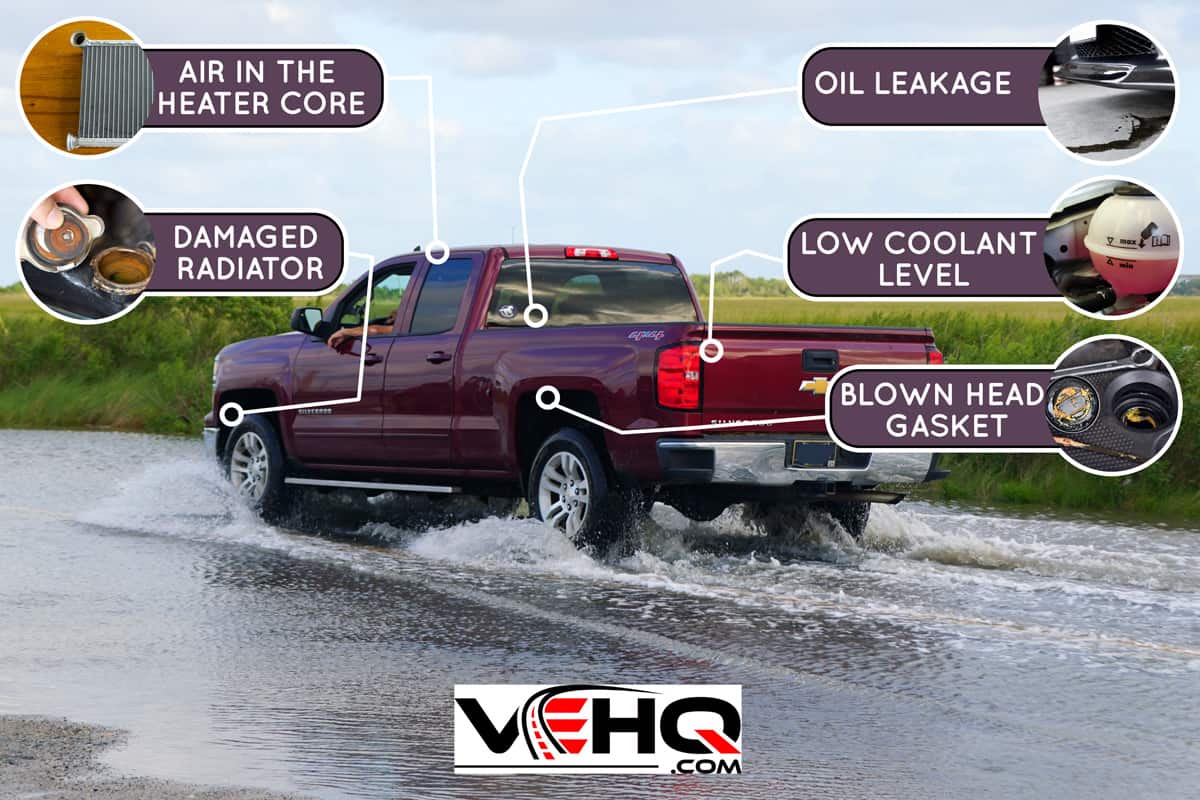
A gurgling sound is usually produced by the air or water flowing through a car's cooling system. When the vehicle is running, coolant fluid passes through the engine to cool it.
A Chevy Silverado, when idling or in motion, may make gurgling noises for various reasons. If parts in your automobile have recently been changed, a problem may arise because of a bad fit. Here are common causes of gurgling sounds in Chevy Silverado:
Low Coolant Level
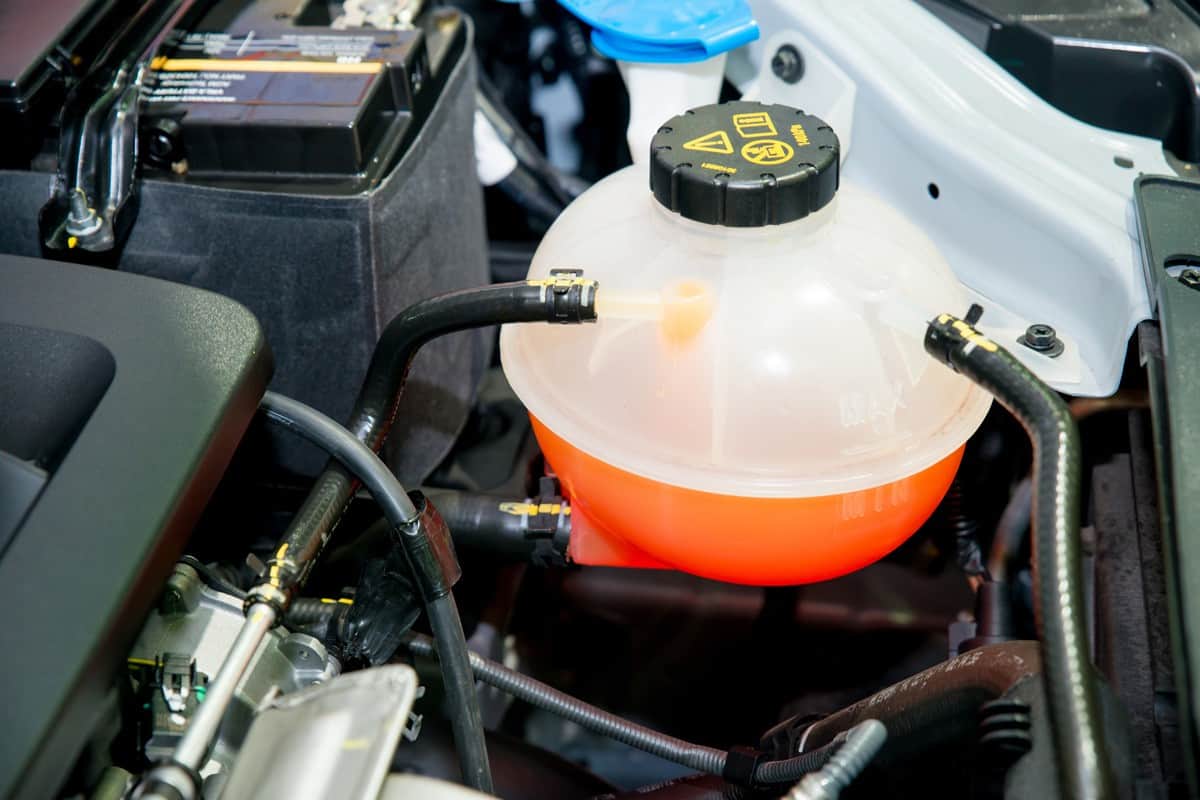
There could be an issue with the cooling system if your Chevy Silverado engine is overheating, which would cause it to gurgle. This is the common cause of gurgling noise.
For instance, if your car's coolant leaks, there will be less coolant in the radiator, which results in overheating, and the hose creates a gurgling or boiling sound.
In addition, when your coolant level is low, air fills the space left by the missing coolant. This results in air pockets in your system, which produces a gurgling sound.
Low coolant is typically caused by one or more leaks, including those from damaged hoses, a busted water pump gasket, and other possible sources.
Blown Head Gasket
A damaged head gasket can allow exhaust gases to mix with coolant, trapping them in the system and resulting in a bubbling or gurgling sound when the engine is running.
If this is the case, you might also notice that your Chevy Silverado doesn't run efficiently because the leak is causing it to lose compression, affecting how well it runs.
Damaged Radiator
Radiators problem is one of the common issues with most automobiles. A lousy radiator may cause a gurgling sound in the car's engine.
A lousy radiator will result in engine overheating. When an engine is overheated, the coolant gets extremely hot, which accelerates the fluid's flow rate, producing a gurgling sound.
Therefore, inspecting the water pump and radiator should be a top priority because there can be some severe issues with your Chevy Silverado's radiator.
Air In The Heater Core
The engine and radiator are connected by a short hose that keeps water flowing through them. All the water will swiftly flow out of the radiator and back into the cooling system once the heater valve is opened.
As a result, coolant is used by the heater core in your automobile to heat the cabin. You will hear a gurgling sound coming from the passenger side, under the dash of your Chevy Silverado, if air gets into the heater core.
Oil Leakage
Even though oil leaks are uncommon, when they do happen, the engine will make a gurgling sound. The oil is needed for the engine to run smoothly. Therefore, if you own a Chevy Silverado, you should be aware that your automobile will produce a gurgling sound when the oil needs to be changed.
What To Do If You Notice Gurgling Sound Under Chevy Silverado's Dash?
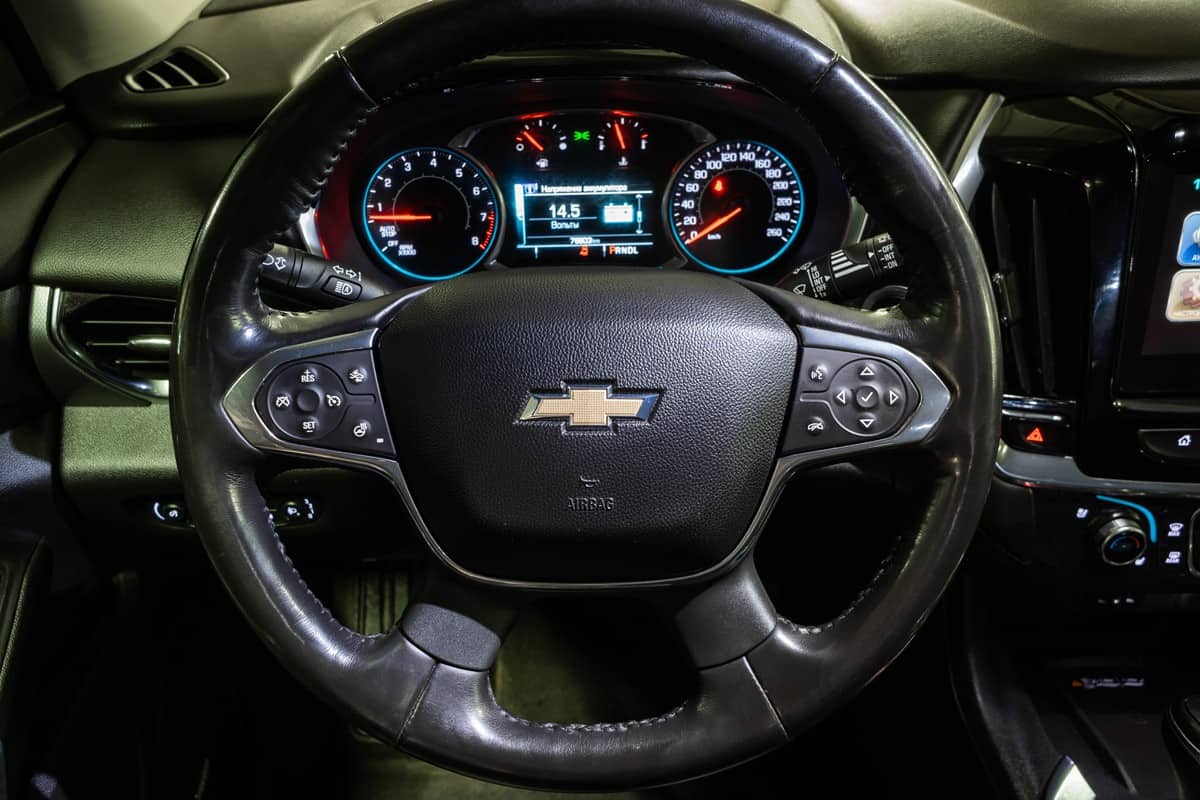
The good news is that there are a few simple repairs you can do on your own if you notice a gurgling noise coming from your Chevy Silverado.
Issues like running out of gas or oil, or even more severe issues like an engine leak, could be the issue. So, the things you can do to fix the issue are listed below:
Check For Overheating
When an engine runs hot or overheats, the cooling system may experience a thermal lock, which may sound like gurgling from inside the engine's radiator.
A rising temperature gauge is the most apparent indication that an engine is overheating, mainly if the check engine light is also on. When an engine overheats and forces coolant into the overflow container, a bubbling sound will be produced.
Smoky steam rising from underneath the hood indicates that the coolant has bubbled out of the radiator and that you must stop immediately to avoid causing severe engine damage.
Check Coolant Level
The power steering system uses the hydraulic pressure generated by the power steering pump. Low fluid levels can draw air into the system, which results in gurgling noises from air bubbles in the system.
Locate the fluid reservoir, then unscrew the cap (twist counterclockwise) to check the level of the coolant. The system leaks if the fluid level is low or the reservoir is empty.
Check for leaks in the fluid pump, hoses, rack, pinion, or box assembly, and repair them if necessary. If necessary, replace worn or damaged parts, and refill the system with the fluids the manufacturer recommends.
Install A Flow Restrictor
Coolant is forced through the heater core while the engine is running. An excessive amount of coolant being pumped through the heater core might result in the air in the heater core.
When air bubbles become trapped in the heater core, they may cause a gurgling sound. So the back or front of the car must be jacked up to remove the bubbles from the core. A flow restrictor must be installed on the heater core input or outlet hose.
What Are The Signs of Low Coolant In Chevy Silverado?
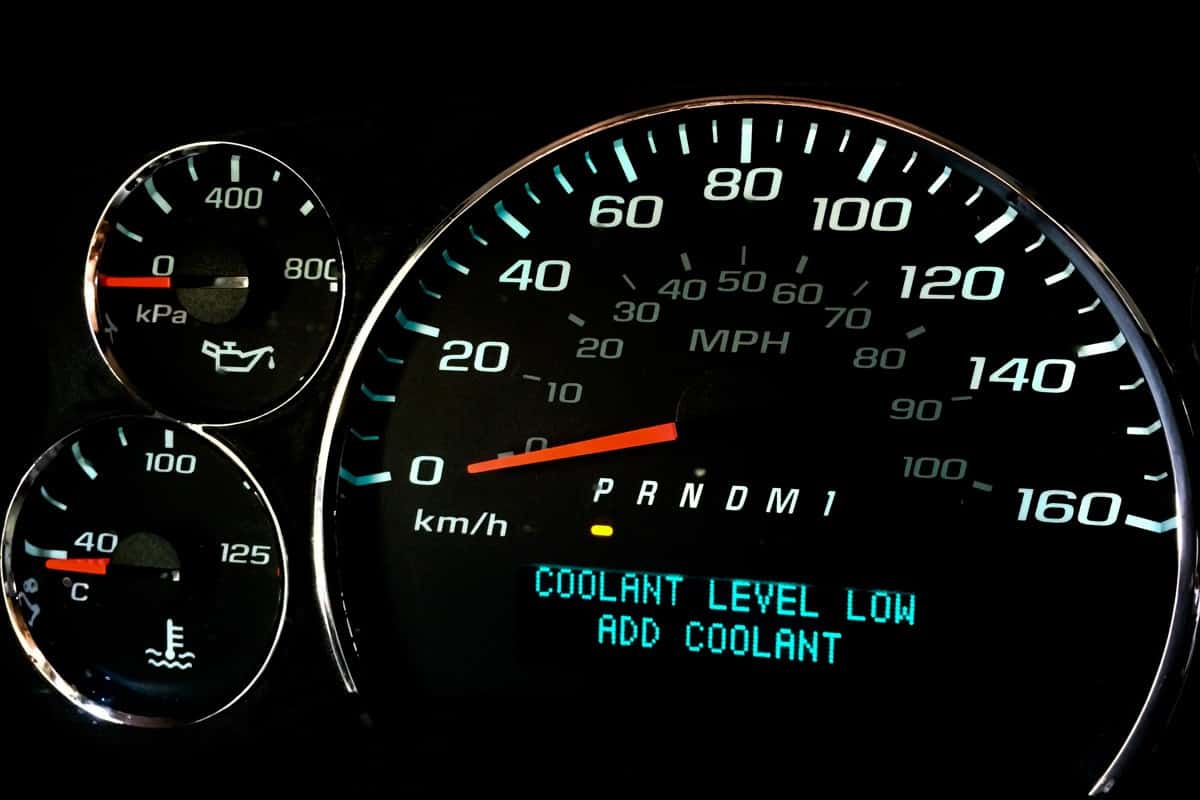
The signs of low coolant depend on how much antifreeze is left in your car. Your antifreeze light will often turn on when there is insufficient coolant. A "Check Coolant" notification may also appear on the dashboard of your Chevy Silverado. You will notice some of these signs if your coolant is low.
- Dashboard warning light.
- Rising temperature gauge.
- Poor fuel economy.
- Automatic engine cut-off.
- The internal heating system is not working correctly.
- Different sweet smell.
How Long Does Coolant Last In Chevy Silverado?
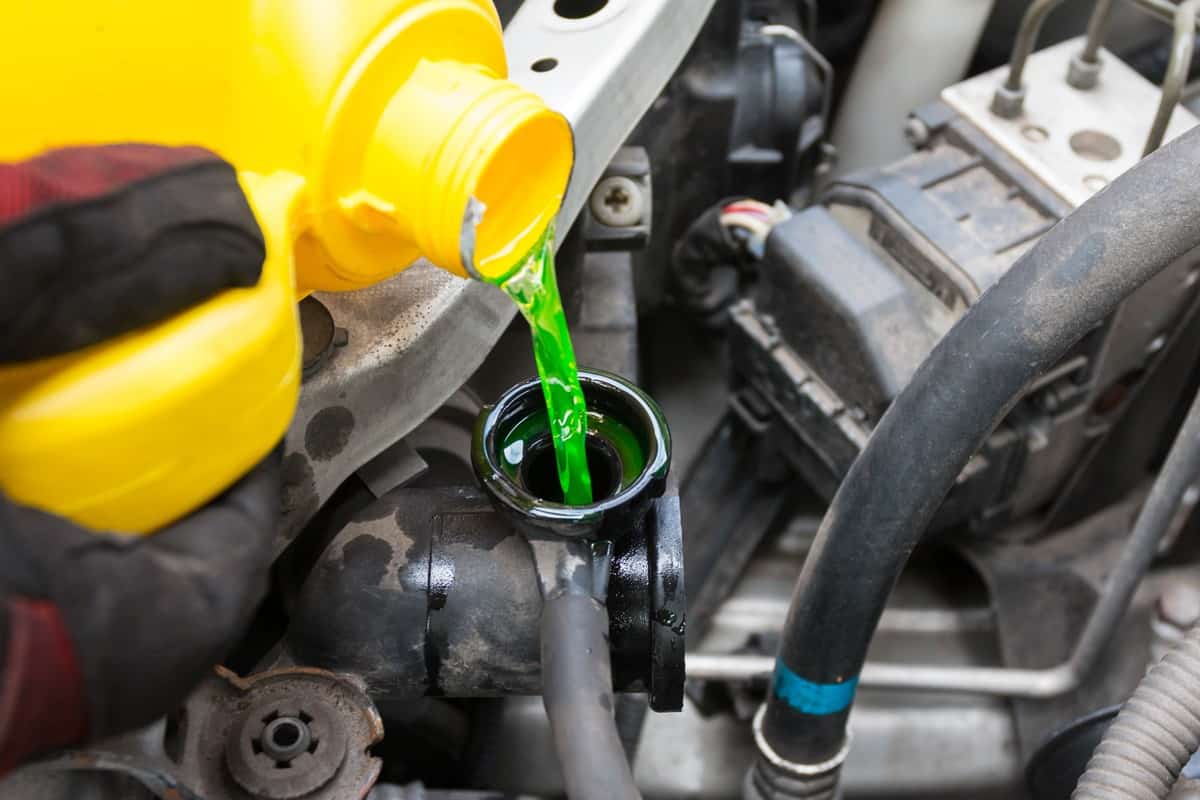
How long a coolant lasts in a Chevy Silverado depends on the coolant you are using. There are different kinds of coolants.
There was just one kind of coolant available until the mid-1990s. It was a green-colored coolant with corrosion inhibitors that lasted only two to three years or between 24,000 and 36,000 kilometers. This type of coolant is not advised for newer automobiles that already have a longer-lasting coolant.
Modern coolants can last twice as long as earlier ones. Manufacturers advise changing your coolant regularly. It would be best if you changed your car's coolant 140,000 miles after purchase and then every 20,000 miles or every two years after that.
Can I Add Water To My Coolant?
Yes, a small amount of water added to the coolant shouldn't cause any harm, but adding too much will reduce its boiling point and prevent it from functioning effectively.
Therefore, while topping up your coolant with water can let you reach the closest garage safely and fix any problems, it isn't reliable.
How Long Can You Drive After Coolant Light Comes On?
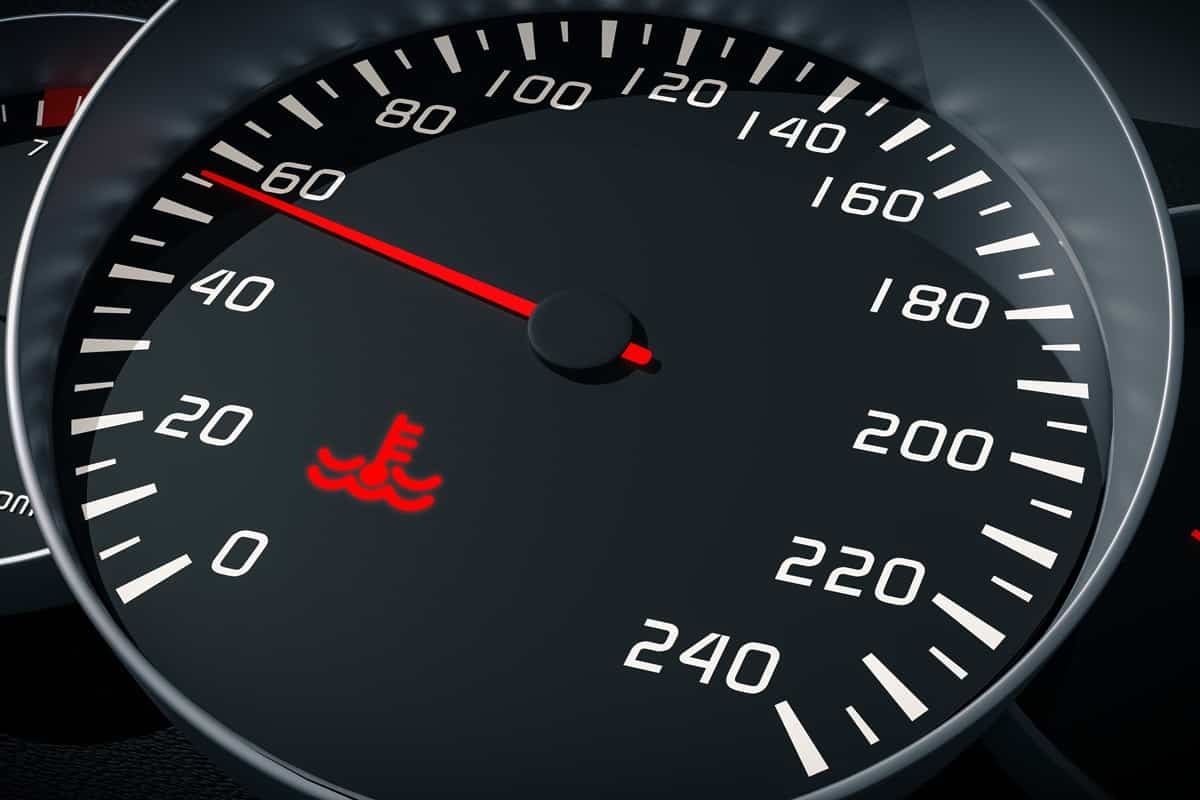
The coolant in your car will significantly determine how long you can drive. If you have to drive your vehicle with a coolant light, it will probably run for approximately a minute without causing harm. You might be able to drive without coolant for up to five minutes, depending on your engine and car model.
Can I Top Up Coolant Without Flushing?
A coolant top-up is not problematic. You can top up coolant without flushing out the old one. However, with time, the old coolant will eventually turn acidic. This may result in corrosion, leading to a damaged cooling system.
The average coolant change costs $97–12. Taxes, fees, and your specific Chevy Silverado model year are not considered in this price range. There can also be a requirement for related repairs or maintenance.
You can combine various coolant brands as long as they are the same type of coolant. The color is less important given that it is just a dye.
To Wrap Up
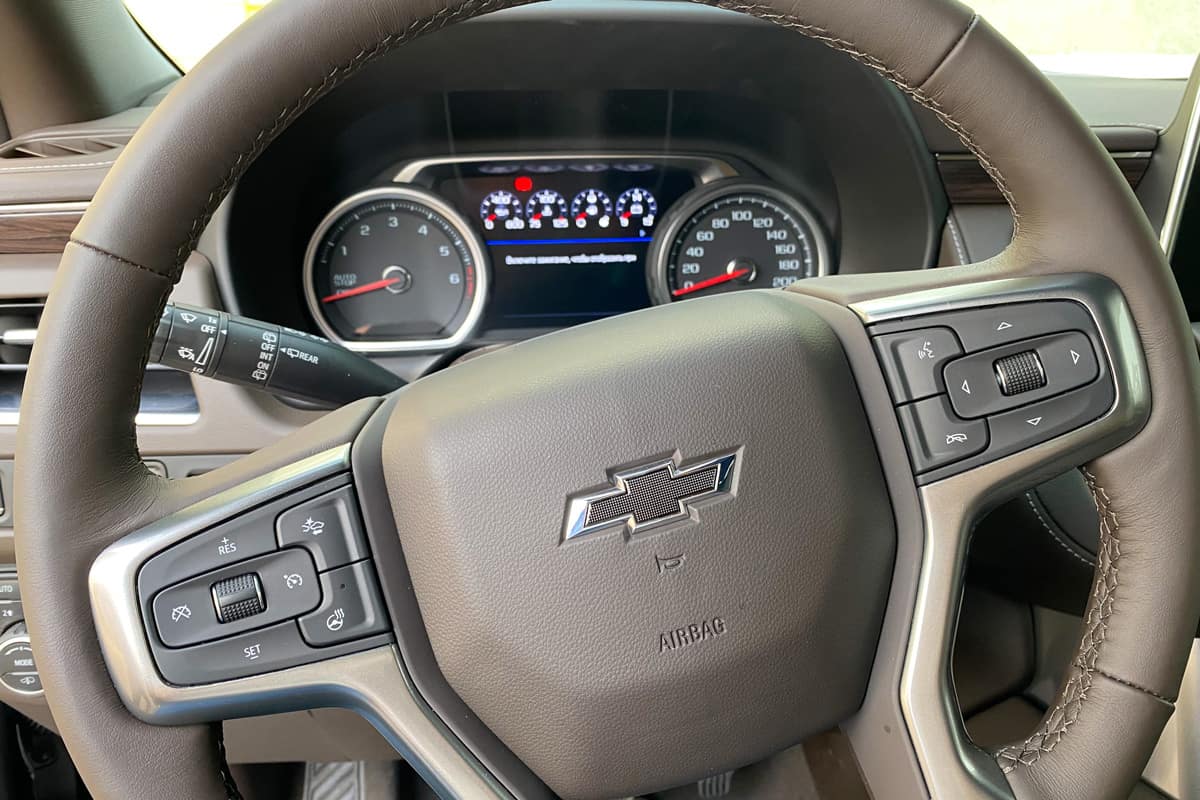
If you notice a gurgling sound under Chevy Silverado's dash, the chances are that you have a low coolant, a blown head gasket, a faulty radiator, and oil leakage. You should fix this problem as soon as possible to get your car in good working order.
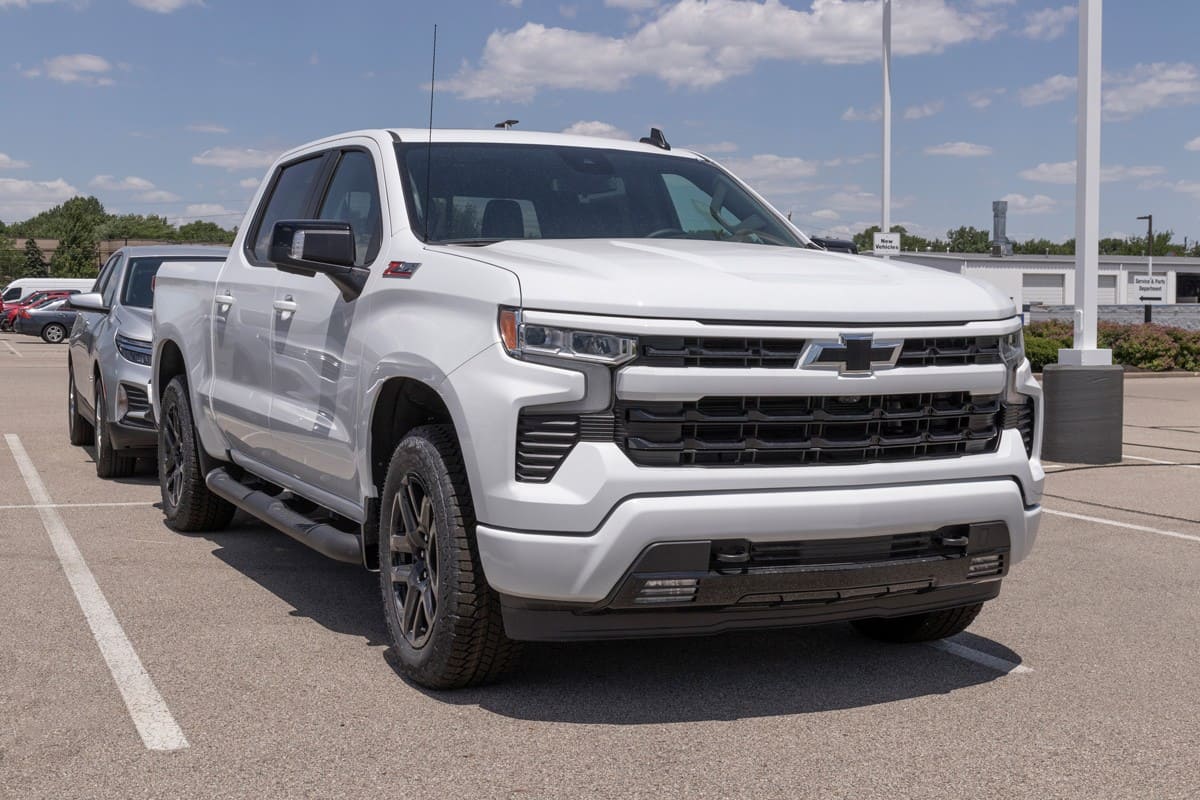
If you enjoyed reading this post, here are similar articles you may like:
Car Gas Tank Making Noise - What Could Be Wrong?




